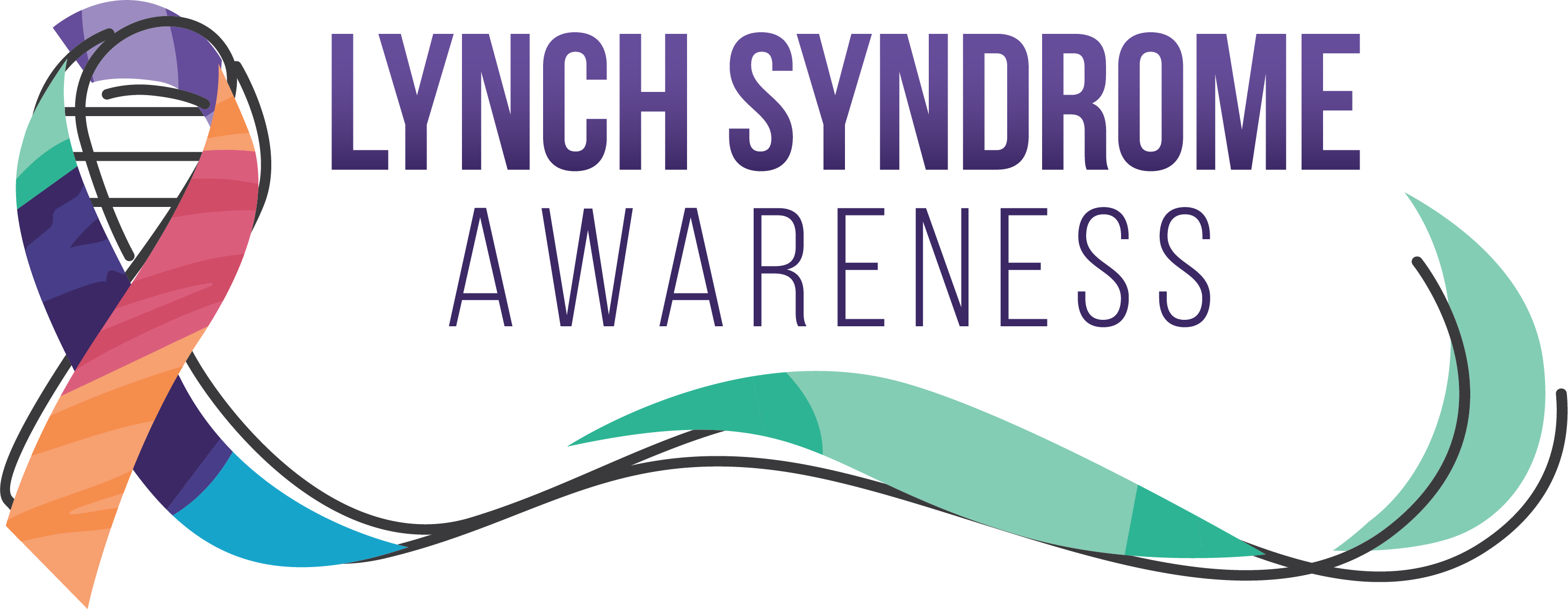Advancing Awareness for Lynch Syndrome
Join us in our mission to spread Awareness and Education about Lynch Syndrome
Empowering individuals with knowledge and resources to understand and combat Lynch Syndrome effectively.
How Common Is Lynch Syndrome?
Lynch Syndrome is a hereditary condition that increases the risk of multiple cancers, including Colorectal Cancer, Endometerial Cancer, and Skin Cancers, just to name a few. Our organization is dedicated to raising awareness, providing education, and supporting research. We aim to empower individuals and families with the information they need to make informed health decisions and advocate for their well-being.
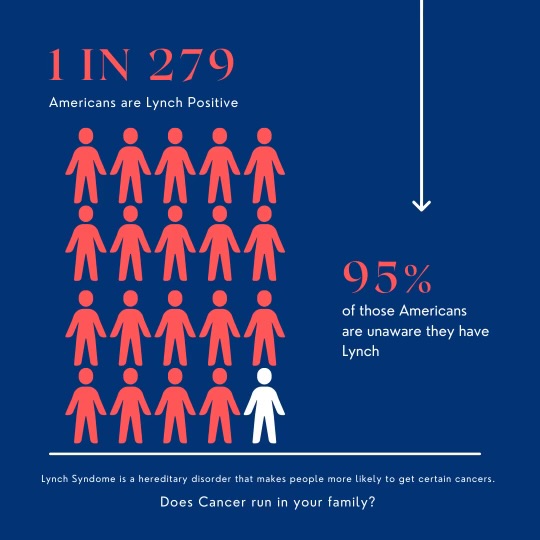

Applied Knowledge is Power in Early Detection and Prevention
The most significant aspect of Lynch Syndrome is that it is a genetic condition. If a person inherits a mutation in one of the mismatch repair (MMR) genes, such as MLH1, MSH2, MSH6, or PMS2, they have an increased risk of developing various cancers. However, knowing that one carries this mutation can lead to early detection strategies that drastically improve outcomes.
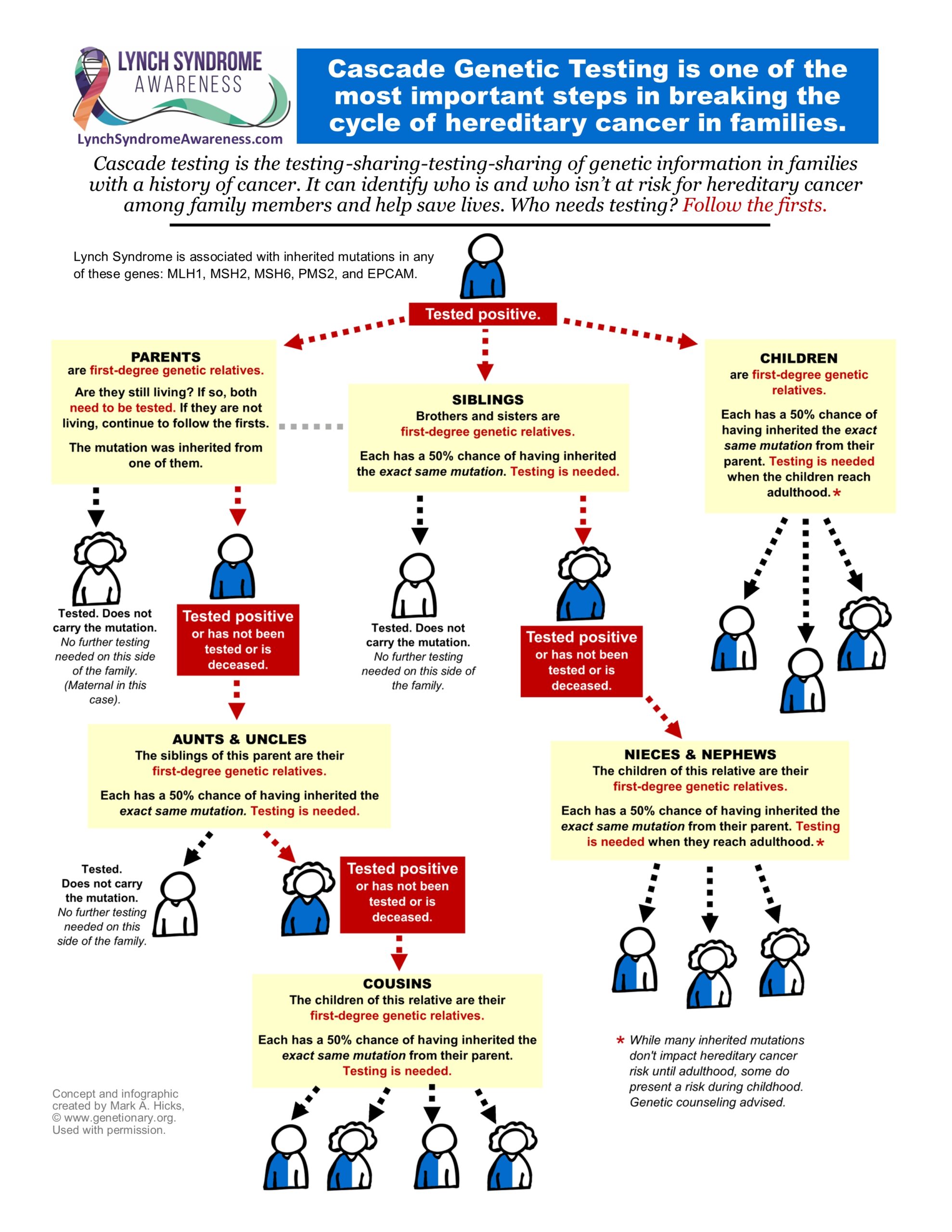
What Can I Do Now?
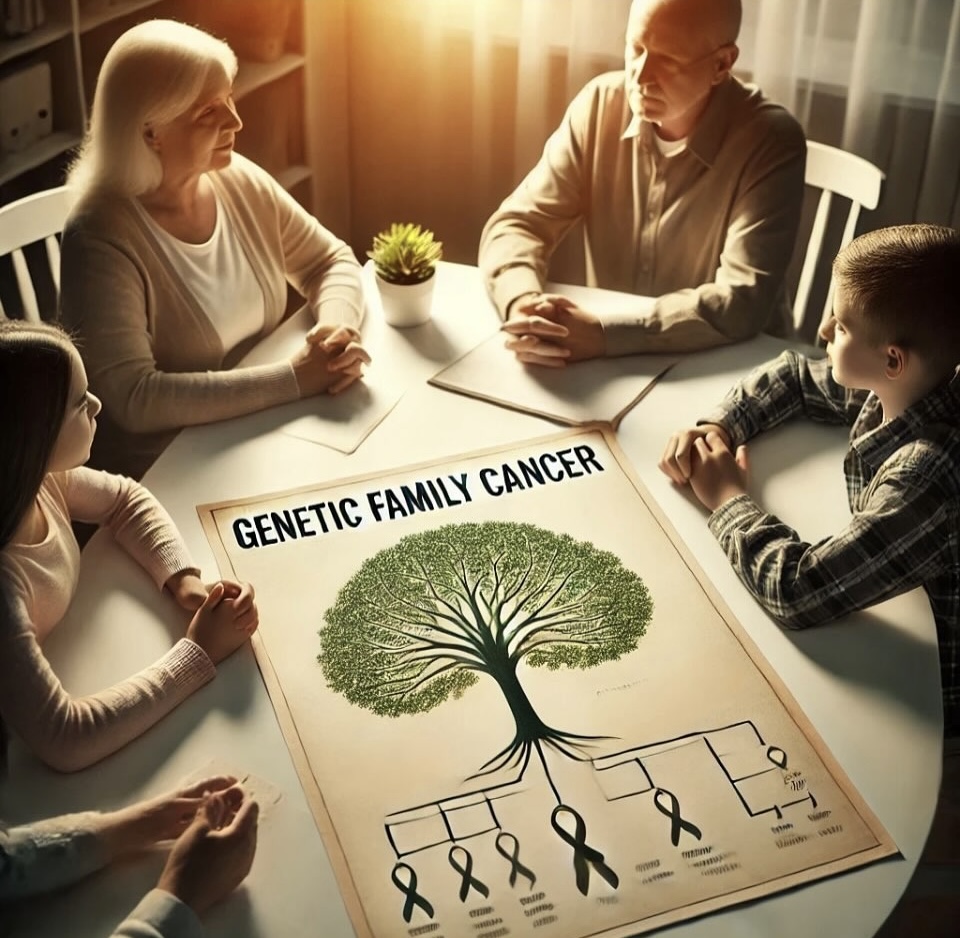
Share family health history
Sharing your family health history is crucial when it comes to Lynch Syndrome because it helps identify individuals who may be at an increased risk of developing certain types of cancer.
Lynch Syndrome is an inherited genetic condition that increases the risk of various cancers, especially colorectal, endometrial (uterine), ovarian, stomach, and others.
By sharing your family’s health history, doctors and genetic counselors can assess whether there is a pattern of cancers that may suggest Lynch Syndrome. The recommendation could be to have genetic testing which can potentially lead to earlier diagnosis and proactive management.
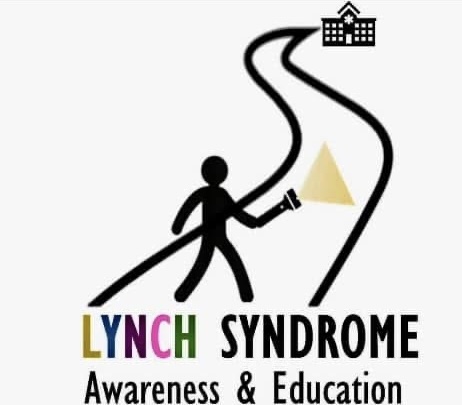
Advocate for your health
Being your own advocate for Lynch Syndrome involves taking proactive steps to understand your health, communicate with your healthcare providers, and make informed decisions about your care.
Here are several ways you can advocate for yourself if you or a family member has Lynch Syndrome. Educate yourself about Lynch Syndrome, know your risks, follow recommended screenings consider preventive measures, and be aware of symptoms.
Stay informed with new research and guidelines. Be persistent. If something doesn’t feel right, or if you’re not getting the care you need, speak up.
Being your own advocate means continuing to push for the best possible care, even if it feels challenging at times.

Build a network of support
Connect with others. Never be afraid to talk with others for support. Whether that be a friend, spiritual leader, support groups, online communities, counselors, or organizations focused on Lynch Syndrome.
Talking to others with similar experiences can provide emotional support and practical advice.
Knowledge is POWER! Managing Lynch Syndrome requires vigilance, but with regular screenings and proactive health measures, you can significantly reduce your cancer risks.
This website is intended for informational purposes only and is not a substitute for professional medical advice, diagnosis or treatment. Please talk to your healthcare provider about any questions or concerns you may have regarding your health.
Join Us In Our Mission to Spread Awareness and Education for Lynch Syndrome
Your support can make a difference! Whether you choose to donate, volunteer, participate in clinical trials, research studies, or help spread the word, every action counts in our mission to raise awareness about Lynch Syndrome. Please join us in providing awareness and education. Together, we can make a difference.
